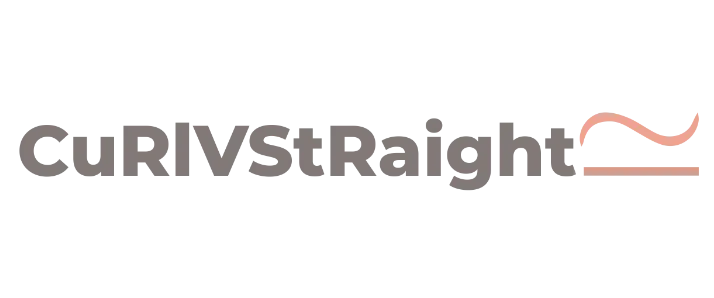
Have you ever wondered why your once-luscious locks seem a bit lackluster these days? You’re not alone. Many people notice changes in their hair texture, density, or strength and can’t quite put a finger on the cause. It’s like the mystery of the missing sock – frustratingly elusive. But have you ever thought about iron hair growth?
Right, iron and hair growth might not be the first thing you think about in the morning, but bear with me. Iron plays a crucial role in our overall health, and, you guessed it, that includes our hair health too. A lack of iron could be what’s causing that unwelcome hair condition change.
The Iron-Hair Connection
Iron is essential for producing hemoglobin, a protein that helps red blood cells carry oxygen throughout your body. It’s an energetic little multitasker also critical for several vital bodily functions. When it comes to hair growth, iron’s role is paramount. It supports healthy blood and, consequently, the delivery of necessary nutrients to your hair follicles. Without adequate iron, hair follicles don’t get the oxygen and nutrients they need, and guess what? Your hair begins to struggle.
Imagine your hair follicles are like those needy houseplants you keep forgetting to water. Just as thirsty plants will wilt, hair deprived of its essential nutrients becomes dull and fragile, potentially leading to that awful phrase: hair loss.
Identifying Iron and Nutrient Deficiency Hair Loss
Let’s break this down a bit more. You might be experiencing hair thinning or shedding, but how do you know if it’s tied to iron insufficiency? Well, nutrient deficiency hair loss isn’t about one bad day or a bad week. It’s consistent and often accompanies other symptoms of iron deficiency like:
- Fatigue
- Weakness
- Pale skin
- Brittle nails
- 5. Shortness of breath
- 6. Cold hands or feet
If you’ve ticked more than a few of these symptoms, it might be worth considering your iron status. Trust me, no amount of expensive hair masks or serums will fix this if your roots—literally—are crying out for some iron.

Why Iron Deficiency Occurs
There are several reasons why you might struggle with maintaining adequate iron levels, which is more common than you might think. Let’s run through some of the usual culprits:
1. Dietary Choices:
Perhaps the most straightforward reason. Not everyone consumes enough iron-rich food like red meat, beans, lentils, and spinach. Vegans and vegetarians should pay particular attention here since plant-based diets can sometimes fall short in providing enough iron unless carefully planned.
2. Poor Absorption:
Even if you’re eating the ‘good stuff’, conditions like celiac or inflammatory bowel disease can affect how your body absorbs nutrients, including iron.
3. Blood Loss:
For many women, menstruation can be a big factor in iron loss. Pregnancy also ramps up your body’s iron demands.
4. Medical Issues:
Chronic diseases or certain medications might also upend your iron balance.

Boosting Iron, Boosting Hair
Knowing there’s a problem is only half the battle, right? Let’s dive into some solutions and realistic ways to integrate more iron into your routine. You’re on the hunt for that ‘hair glow-up’, and understanding iron hair growth strategies could be your golden ticket.
Iron-Rich Diet Tweaks
Recalibrate your food intake to include some iron-infused heroes. Think of it like adding a pinch of this or that to spice up a basic dish.
- Leafy Greens: Spinach isn’t just Popeye’s thing. Kale, Swiss chard, and collard greens are awesome, too.
- Lean Meats: Don’t sleep on beef or chicken; they’re spectacular for a meaty iron fix.
- Legumes: Lentils and beans are outstanding non-heme iron choices.
- Fortified Foods: Many cereals and breads come packed with added iron.
Smart Pairings
This part’s actually a bit fun – it’s all about combinations. Together with non-heme iron sources, add foods rich in vitamin C (think oranges, bell peppers, strawberries) to boost iron absorption. So, if you love a good challenge, start experimenting with those meals!
Customize Your Supplements
Iron supplements can be game changers if diet alone isn’t cutting it. But hold on – before you dash off to the pharmacy, check in with your healthcare provider. Too much iron can be as bad as not enough, which, based on few bad home dye jobs, is something you want to avoid.
Steer Clear Of Blockers

Like many things, you’ve got to watch out for the under-the-table blockers—those sneaky substances that interfere with iron absorption. Coffee, tea, and calcium-rich foods immediately after consuming iron might slurp up the iron, leaving your follicles tossing in the wind.
Common Misconceptions About Iron and Hair Health
It’s fascinating, really, how myths about hair and health circulate faster than that new pop song. Let’s debunk a couple:
- Myth 1: More Iron Equals Faster Hair Growth
- While adequate iron levels are necessary for maintaining existing hair health, once you’ve met your iron needs, eating more won’t speed things up. It’s about balance, not a magical fast-forward button.
- Myth 2: Iron Supplements Are Always Safe
- Surely more supplement minerals are always an innocent help, right? Wrong. Oversupplementing iron could lead to toxicity, affecting heart and liver health.
Key Takeaways
Before we tie everything together, let’s highlight where our focus has been so you can walk away with clear, actionable steps.
- Keep an eye on both your diet and your body’s signals. They’re the first clues whether something’s off balance.
- Iron plays a central role—a pin missing from a hairpin turn might spell disaster for your hair’s timeliness.
- Supplements are useful heroes, but follow your doctor’s advice before crafting a homemade one’s-fits-all solution.
- Balance is power—not only in personal growth, but in understanding iron and its impact on your daily health, especially when translating from nutrient deficiency hair loss to health.
Final Thoughts
Iron may not wear a cape, or, well, maybe it does in the realm of hair care. Whether you already suspect those disappearing strands to be tied to iron hair woes or you’re now checking all this new info at face value, remember—it’s about carefully considering what your bleeding comb is telling you.
In this lively world of hair dilemmas, go step at a time. Listen to your body, savor a well-prepped meal, and pay your hair the courtesy of a grocery list makeover. You’ll thank yourself –and trust me, your hair will too. Keep experimenting, and who knows? You just might crack the code and quench those thirsty locks the moment they need it most. Who knew a sprinkle of iron was all it took?
Frequently Asked Questions
How does iron impact hair growth?
Iron plays a crucial role in hair growth by supplying oxygen to hair follicles, facilitating their growth and regeneration. It is essential for the production of hemoglobin, which carries oxygen to cells, including those involved in hair growth. Without adequate iron, hair follicles may become deprived of oxygen, leading to stunted growth and hair loss[1][2][4].
Can iron deficiency cause hair loss?
How can I treat hair loss due to iron deficiency?
Treating hair loss due to iron deficiency involves increasing iron levels through dietary changes or supplements. Incorporating iron-rich foods like lean meats, beans, lentils, and dark leafy greens into your diet can help. Additionally, taking iron supplements, especially when combined with vitamin C to enhance absorption, can restore iron stores and promote hair regrowth. A blood test can confirm iron deficiency, and consulting a doctor is recommended before starting any supplements[2][3][4].



Leave a Reply